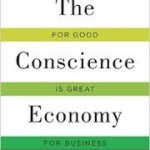
When someone asks you what you do for a living, how do you answer? And equally, or perhaps even more important, what does your face look like?
Compare and contrast these scenarios:
Teacher A answers with a heavy sigh, “I teach high school.”
Teacher B answers with a smile, “I open young minds.”
Accountant A says with a grimace, “I do taxes.”
Accountant B proudly announces, “I help people make sense of finance.”
You get the point. There are two ways to do any job. One way is to focus on what you do, mindlessly checking the boxes until you retire, or make it to the weekend.
The other way is to think about the impact of what you do, and enthusiastically engage yourself in the process of improving the lives of others. I call it Noble Purpose. 
When I start a consulting project, I always pay attention to the way people describe their jobs. I’ve noticed that people describe their jobs, in the exact same way that they describe their lives.
As you look at the above scenarios, the obvious question is who would you rather have teaching your child, or doing your books?
But here’s the not so obvious question, who would you rather be? The person who is emotionally engaged in their work, or the person just going through the motions?
We often assume that our feelings or mindset are the result of our situation. Yet in most cases, we are entirely at choice about how we interpret our jobs, and consequently, our lives. In my work as a consultant, I always encounter both miserable people, and happy people, who are doing the exact same jobs, in the exact same conditions for the exact same supervisor. Some of their reaction may be due to their fit for their job, but in my experience, most of their mindset comes from their internal story.
The story you tell yourself about your job becomes the reality. And the story you tell yourself about your job inevitably becomes the story of your life. Said another way, if you hate your job, it’s only a matter of time before you hate your life.
It has been said that a mother is only as happy as her least happy child. Here’s the business reframe, a person is only as happy in life as they are in their job. Whether you work in business, or outside it, your job is a huge part of your identity.
Earlier this year, one of the New York Times most emailed articles was “Why You Hate Work.” The article, based on a large-scale workplace study, estimated that as many as 50% of people hate their jobs.
Take this in. Half of our people, our very best resource, the literal lifeblood of our economy, not to mention our future, are spending the better part of their days miserable.
Are we really going to be OK with this?
During a recent conversation with Steve Overman, the Vice President of Marketing for Kodak and author of The Conscious Economy, he said, “Business is the fundamental endeavor of human  life. It is the primary place and context in which we enact our humanity.”
life. It is the primary place and context in which we enact our humanity.”
If your job is miserable, there are two solutions, change your job, or change the way you experience it. It’s your story, how are you going to tell it?